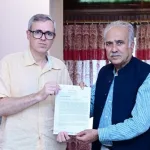Father of Nation Mahatma Gandhi had rightly said that, ‘there is enough for everybody’s need, and not for everybody’s greed. Mother Nature has provided us with resources that are sufficient for everyone but people because of their greedy nature are trying to keep a lot more than what is required for themselves creating socio-economic disparities. Although there are many resources on earth, nothing is endless, despite what many people think. We began to over-exploit our resources as a result of population growth and human carelessness. There won’t be any resources left for our future generations if this keeps happening Nature has bestowed us with many precious resources. These include soil, water, air, plants, wild life, minerals and many others.
Nature has also given us abundance of floral and faunal biodiversity. India is globally one of the most biologically, ethnically and culturally diverse country blessed with large arable land home to 4 out of 34 global biodiversity hotspots; with 2.4% of the world land area, harbors around 8% of all recorded species including 45,000 plants and 91,000 animal species. Unfortunately the human interference with nature has affected the planet adversely. It is hard to believe, but it is true that human beings which constitute just 0.01 per cent of the earth’s surface have annihilated the rest of it. Fungi, mould and mushroom make up about 2 percent; but still humans have had a big influence on the world’s environment. The natural resources like soil, water and air are limited and their formation takes millions of years. The unfortunate thing is that the human exploits them for their endless consumption and comfort. Human beings, thus pose a serious threat to our natural environment.
Human interference like deforestation, overgrazing, erosion, hunting, illegal wildlife trade, pollution, use of plastics, chemicals, and a lot more has led to so many threats to nature Nearly 30 percent i. e about 96.40 million hectares of land in the country is degraded. This is attributed to the excessive use of fertilizers, overgrazing, deforestation, poor irrigation practices, water logging and shifting cultivation. When we talk of air, air has been pollution to the level of toxicity. Of the 30 most polluted cities 21 were in India (2019) at least 140 million peoples in India breathe air that is 10 times or more over WHO safe limit. Air pollution accounted for 1.7 million (18%) premature deaths in India (2019). The main causes of air pollution are Stubble burning, vehicular pollution, industries, factories, brick kilns.
Water another natural resources is also going through a serious crisis. About 70 per cent of the water bodies are polluted due to industrial affluent, municipal wastes, agro chemicals, oil spills. More than 60 per cent water borne diseases are borne in India like cholera, Typhoid, Malaria, dysentery, Jaundice. Increased urbanization deteriorates the quality of life. 40 per cent of population in Indian cities suffers from lack of basic amenities like health, education, drinking water, electricity making them susceptible to various diseases. The causes of water pollution are industrial wastes, marine dumping, sewage and waste water, oil leaks, agriculture and radiation waste.
Ultimately, the world woke up to the threats to nature. They have realized the importance of protecting and conserving nature and that a healthy environment must be created to safeguard the present and future generations. While preservation and conservation share similarities in that they both aim to safeguard the environment, they approach this goal in different ways. While preservation entails defending nature from human use, conservation aims for the sustainable use of nature by humans for pursuits like mining, logging, and hunting. It is essential for people to understand that the world is one and anything that is done in part of the globe will affect other parts as well. Earth gives basic necessities to live like water, air, soil, minerals, trees, animals, food, so it is required that we keep our nature clean and healthy.
History of WNCD
Due to human interference with nature and the resultant natural imbalance, we are facing several problems like global warming, various diseases, natural disasters, increased temperature, etc. Therefore, for the next generation, it is necessary to preserve it. So, it is important to raise awareness among people all over the world to understand the importance of conservation of natural resources, recycle it, preserve it, and also understand the consequences of damaging it. Recognizing serious environmental challenges, including climate change, deforestation, loss of biodiversity, and pollution, the United Nations General Assembly in 2018 proclaimed July 28th as World Nature Conservation Day to raise awareness about the importance of conservation and sustainable use of natural resources. Observed on July 28 annually, World Nature Conservation Day acknowledges that a healthy environment is the foundation for a stable and healthy society.
Earth’s natural resources include air, minerals, plants, soil, water, and wildlife. Conservation means the wise use of the earth and its resources for the lasting good of mankind’. It is the care and protection of these resources so that they can be preserved for future generations. It includes maintaining diversity of species, genes, and ecosystems, as well as functions of the environment, such as nutrient cycling. Conservation is similar to preservation, but while both relate to the protection of nature, they strive to accomplish this task in different ways. Conservation seeks the sustainable use of nature by humans, for activities such as hunting, logging, or mining, while preservation means protecting nature from human use. Now much emphasis is being laid on evidence based conservation.
Evidence Based Conservation
Evidence-based conservation is the application of evidence in conservation management actions and policy making. It is defined as systematically assessing scientific information from published, peer-reviewed publications and texts, practitioners’ experiences, independent expert assessment, and local and indigenous knowledge on a specific conservation topic. This includes assessing the current effectiveness of different management interventions, threats and emerging problems, and economic factors. Evidence-based conservation was organized based on the observations that decision making in conservation was based on intuition and/or practitioner experience often disregarding other forms of evidence of successes and failures (e.g. scientific information). This has led to costly and poor outcomes. Evidence-based conservation provides access to information that will support decision making through an evidence-based framework of “what works” in conservation. The evidence-based approach to conservation is based on evidence-based practice which started in medicine and later spread to nursing, education, psychology, and other fields. It is part of the larger movement towards evidence-based practices.
Individual Efforts
Conservation also includes our individual efforts including that at household level too, that small efforts can make a big difference. We can conserve nature by using our natural resources like water, soil and air judiciously. Reduce, Reuse and Recycle should be adopted in our day to day life. Electricity consumption can be minimized with the use of LED bulbs. Leakages in our taps and judicious use of water in our bathrooms and latrines if avoided can prevent million of liters of water being wasted. Cutting of trees should be discouraged while planting should be encouraged. Waste should be properly disposed of and items such as single use plastics that do not decompose even after thousands of years should be not be used at all. India has taken many initiatives at the national level like the Swachh Bharat Abhiyaan, Project Tiger, and Mangroves for future to conserve to resources and its rich biodiversity.
One of the main aims of World Nature Conservation Day is to save species of plants and animals that are in danger of going extinct. July 18 reminds us of our responsibility and duty to work towards preserving nature’s different elements including its fauna, flora, land, water, and air. It also emphasizes the need of protecting the environment for coming generations. Therefore, it is our responsibility to leave a healthy planet for future generations to enjoy. It is essential for all of us to understand that the world is interlinked and interdependent; anything that is done in part of the globe will affect other parts as well. On this day let us once again commit ourselves to make conscious effort to protect and conserve nature around the world.
(The author is a Scientist at SKUAST-K; can be reached at: [email protected])





